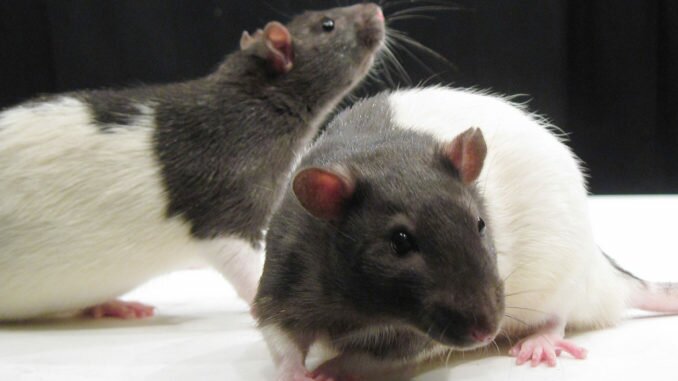
Amsha Viraragavan
University of Zululand – PhD
Rooibos is not usual grub for Wistar rats. These particular rats have been fed a high-fat diet so that researchers can study obesity. But rooibos, a herbal plant commonly drunk as a tea, could have positive health benefits for this unfortunate laboratory rodent: it could help it lose weight.
For decades, obese Wistar rats have been the mainstay of obesity drug testing: if they have been made fat by their diet, they reflect obesity development in humans. Scientists at the South African Medical Research Council believe that rooibos could prevent obesity and undo the damage of a high-fat diet.
According to a 2016 article in medical journal Lancet there are now more overweight and obese people in the world than underweight people. Two years earlier, Lancet reported that in South Africa seven in 10 women and two in five men are significantly heavier than the medically accepted weight for a healthy person. Scientists at Duke-NUS Graduate Medical School estimate that more than half of the global population will be obese by the year 2030 if we don’t take measures to curb this epidemic. Why should we care? Because the real problem with being obese is the diseases that are associated with it, such as diabetes, heart disease, and cancer.
Since 1994, millions of South Africans have moved to cities, and this has come with a change in diet and lifestyle. Poor eating habits and stress often accompany their new, often sedentary, lifestyle. Overeating processed fast food and drinking fizzy drinks makes people more likely to become overweight or obese. This fat either cushions their organs (and is called visceral fat) or accumulates underneath their skin (subcutaneous fat).
Carrying extra fat is more than an inconvenience; it can have major health repercussions, with an obese or overweight person being more likely to develop metabolic diseases and type two diabetes. The reason for this phenomenon is a process called epigenetics – a set of instructions that decides which genes in our DNA are activated and which genes are switched off without altering the genetic sequence. These instructions affect how our cells function and in turn, the health of our bodies. Research has shown that a high-fat diet affects our genes through malfunctioning epigenetics.
Since the food we eat is converted into glucose, a type of sugar that is carried in the blood, and absorbed by cells, our glucose-disposing systems get damaged. Muscle, liver and fat tissue all dispose of glucose, but when the blood contains too much glucose, they lose their ability to function properly. These tissues fail to absorb glucose because genes that code such processes are turned off by a process called DNA methylation. DNA methylation is the circuit in a living system that controls which genes are switched on or off; the circuit burns out when put under pressure in a diseased state such as obesity. Researchers have shown that obesity disrupts this process in both rodents and humans.
Studies at the Biomedical Research and Innovation Platform (BRIP) have shown that aspalathin, one of the active ingredients in rooibos, can reduce high sugar levels in both rodents and in cell cultures. Further work at BRIP has looked into how high glucose concentrations in laboratory-grown cell cultures can be decreased. Using a skeletal muscle cell-model, we have been able to study how irregularly high blood-glucose levels hinders metabolic processes and when treated with rooibos, high levels of saturated-fatty acids and glucose reverted to normal concentrations.
We have also managed to show that rooibos can lower the fat content in mouse fat cells when “fed” a cup-of-tea-strength rooibos over the course of nine days. Researchers at the Tokyo University of Science showed in 2009 that this was true when they fed rooibos tea to diabetic mice. These researchers showed that aspalathin, the active rooibos tea component, repaired abnormal sugar levels in these diabetic rodents over a five-month period.
Based on previous promising health benefits of rooibos in both cell culture and animal models, the BRIP team aims to assess the effect of a high-fat, high-sugar, “cafeteria” diet on genetic material and different fat deposits in obese female Wistar rats. The excessive fat usually collects around their stomachs.
My study will look at the effect of rooibos on epigenetic changes within the two-different fat-depots (under the skin or around their organs) of female Wistar rats. It will hopefully reveal what happens to these rats’ genetics and fat stores when they become obese, and whether rooibos protects against obesity and diabtes by repairing these changes.
But this work will not stop in the laboratory with the Wistar rats: next year, this study will be matched with one on obese women in KwaZulu-Natal, and hopefully generate a weapon in the war against obesity in South Africa.

Leave a Reply